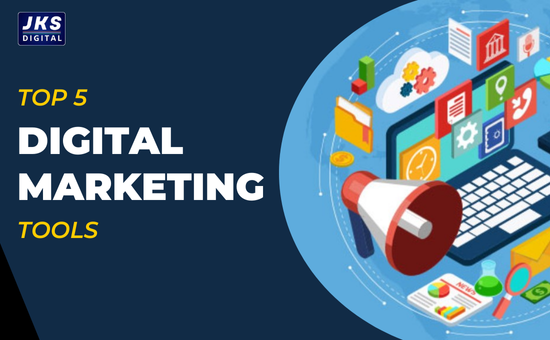The Future of Web 3.0:- The internet is evolving rapidly, and Web 3.0 represents a groundbreaking leap forward. While Web 1.0 was about reading information and Web 2.0 focused on interaction, Web 3.0 is designed to make the internet smarter, more personalized, and decentralized. This next generation of the internet is not just a technological upgrade; it’s a paradigm shift, transforming how businesses, consumers, and marketers interact online.
In this article, we’ll explore what Web 3.0 is, how it is shaping the future of digital marketing, and the strategies you can adopt to stay ahead in this ever-changing landscape.

What is Web 3.0?
Web 3.0, also known as the “Semantic Web,” combines advanced technologies like Artificial Intelligence (AI), blockchain, and machine learning to create a highly personalized and intuitive internet experience. Unlike its predecessors, Web 3.0 emphasizes user control, transparency, and decentralization, meaning individuals own their data and enjoy enhanced online privacy.
For example, in a Web 3.0 world, your search engine understands the context of your queries and delivers highly relevant results tailored to your preferences instead of generic responses. This personalization extends to digital marketing, offering unprecedented opportunities for brands to connect meaningfully with their audience.
How Web 3.0 is Transforming Digital Marketing
1. Decentralization and Data Ownership
Web 3.0 gives users total control over their data. Unlike today’s internet, where tech giants control and monetize user data, Web 3.0 ensures that data is owned and managed by users. For marketers, this means building trust is paramount. Businesses need to offer genuine value in exchange for data access while being transparent about how they use it.
2. Blockchain and Secure Advertising
Blockchain technology ensures greater transparency and security in digital advertising. Issues like ad fraud can be minimized as blockchain verifies genuine clicks and interactions. This helps marketers target the right audience with higher accuracy and reduced costs.
Read Also:- Organic vs Paid Traffic: Which Delivers Better Results for Your Business?
3. Immersive Content through AR/VR
Technologies like Augmented Reality (AR) and Virtual Reality (VR) will revolutionize consumer-brand interactions. Imagine customers virtually trying on clothes or exploring a virtual store. These immersive experiences will be central to digital marketing strategies, increasing customer engagement and conversions.
4. Rise of Cryptocurrencies and Tokenization
Cryptocurrencies will become mainstream tools for transactions, loyalty programs, and rewards. Brands can tokenize services, creating exclusive digital assets for loyal customers. For instance, companies can offer Non-Fungible Tokens (NFTs) as rewards for customer engagement or purchases.
5. AI-Powered Personalization
AI in Web 3.0 will analyze user behavior more effectively than ever, enabling hyper-personalized campaigns. From tailored product recommendations to real-time content, AI will significantly boost satisfaction and conversion rates.
Web 3.0 Marketing Trends to Watch
1. Decentralized Platforms
Platforms like Steemit, DTube, and Minds are emerging as alternatives to centralized platforms like Facebook and YouTube. These platforms offer greater revenue transparency for content creators and advertisers.
2. Privacy-Focused Campaigns
With data privacy becoming a priority, brands must shift towards privacy-first marketing. Ensuring customers feel secure about sharing their data will be essential to building long-term loyalty.
Read Also:- Video Marketing vs. Text Marketing: Which Strategy is Best for Which Business?
3. Metaverse Integration
The Metaverse—a virtual space where users can interact, shop, and socialize—opens exciting opportunities for marketers. Hosting virtual events, launching virtual stores, or creating branded experiences will set forward-thinking brands apart.
4. Interactive Content and Gamification
Gamified marketing campaigns, where users earn rewards by participating, will drive engagement and foster community loyalty. Interactive quizzes, games, and challenges will become staples of Web 3.0 marketing.
Strategies for Web 3.0 Digital Marketing
1. Focus on Trust and Transparency
Brands must build trust by being honest about their data practices. Providing incentives like discounts or exclusive content in exchange for data fosters transparency and encourages voluntary data sharing.
2. Adopt NFTs for Branding
NFTs offer brands unique ways to connect with their audience. Companies can create limited-edition NFTs as collectibles or rewards, boosting both engagement and loyalty.
3. Invest in Immersive Experiences
Integrating AR/VR technologies into marketing campaigns can create memorable experiences. Virtual product launches or immersive ads will drive engagement and generate buzz.
4. Leverage AI and Machine Learning
AI can analyze customer data in real-time, enabling highly personalized marketing campaigns. E-commerce platforms, for instance, can suggest products based on a customer’s browsing history or purchase behavior.
5. Prepare for Crypto Payments
Adding cryptocurrency as a payment option will attract tech-savvy consumers. It demonstrates your brand’s adaptability and makes the shopping experience seamless.
Challenges of Web 3.0 in Marketing
While Web 3.0 offers numerous opportunities, it also presents challenges:
- Learning Curve: Implementing technologies like blockchain, AR, and AI requires technical expertise and investment.
- User Education: Many users are unfamiliar with concepts like decentralization and data ownership. Educating your audience about Web 3.0 is critical for adoption.
- Increased Competition: As more brands enter the Web 3.0 space, standing out will require creativity and innovation.
Read also:- Ecommerce vs. Service-Based Marketing: Key Strategies for Success
Conclusion
Web 3.0 is not just the future of the internet; it’s the future of how we connect, interact, and market. For businesses, this is an exciting time to innovate, build trust, and create personalized experiences that resonate with their audience.
By adopting strategies like decentralization, immersive content, AI-driven personalization, and cryptocurrency integration, brands can position themselves as leaders in this new digital era.
Are you ready to embrace Web 3.0 and revolutionize your digital marketing game? The future is here—don’t wait to be a part of it!
4o






